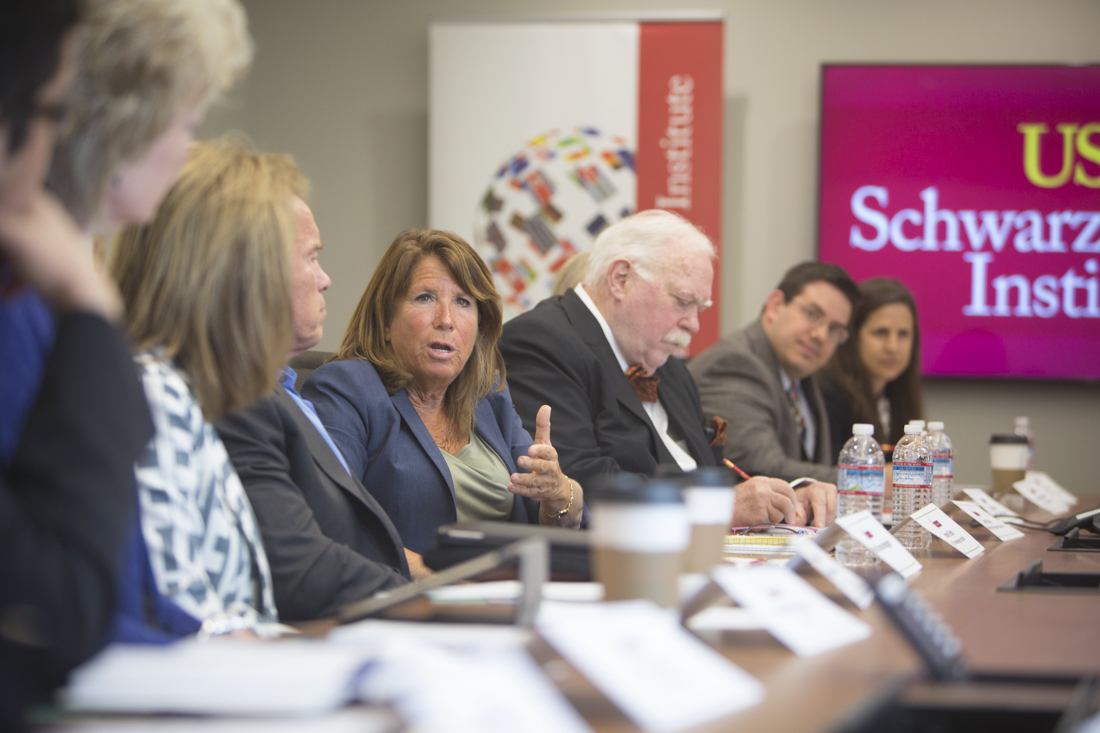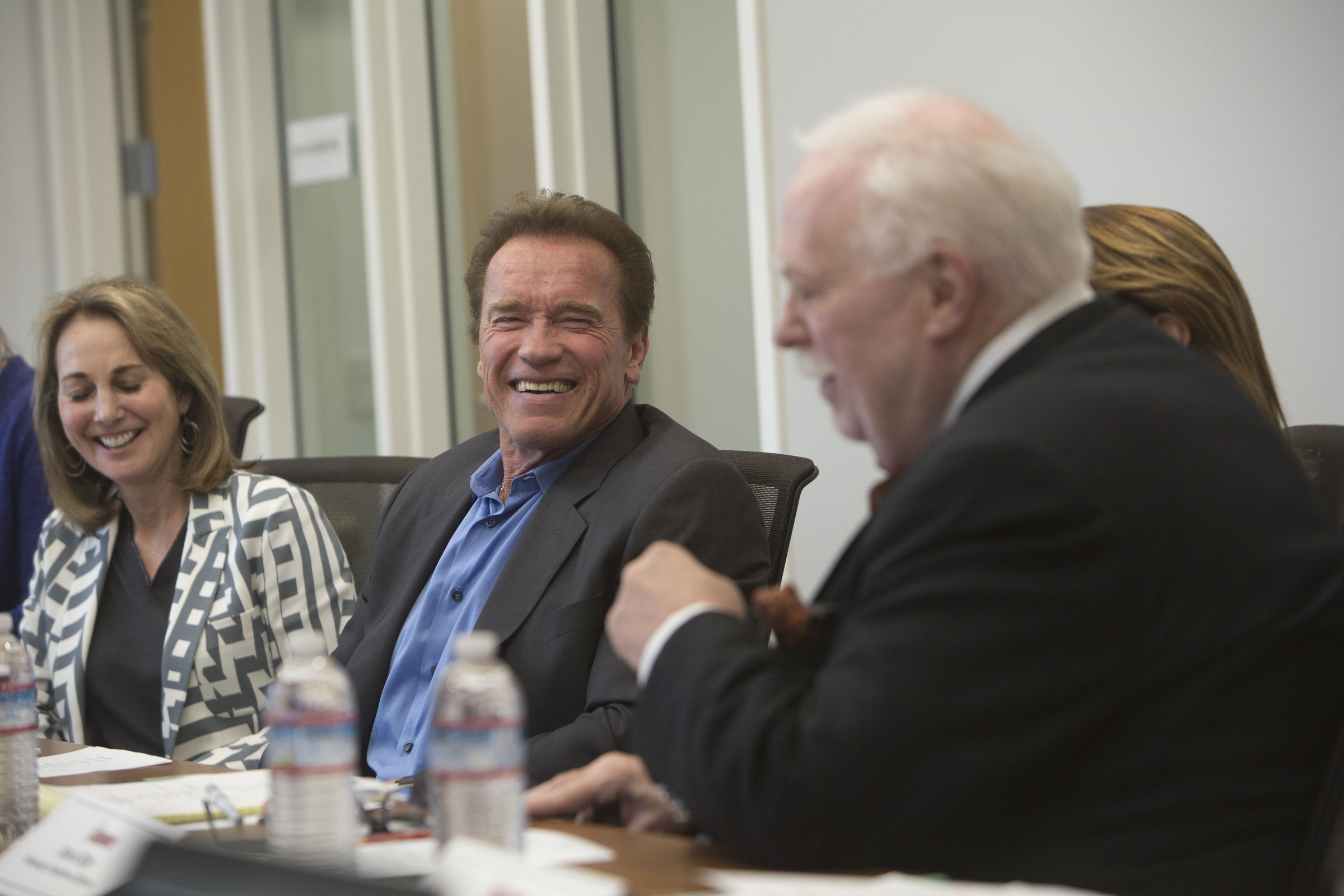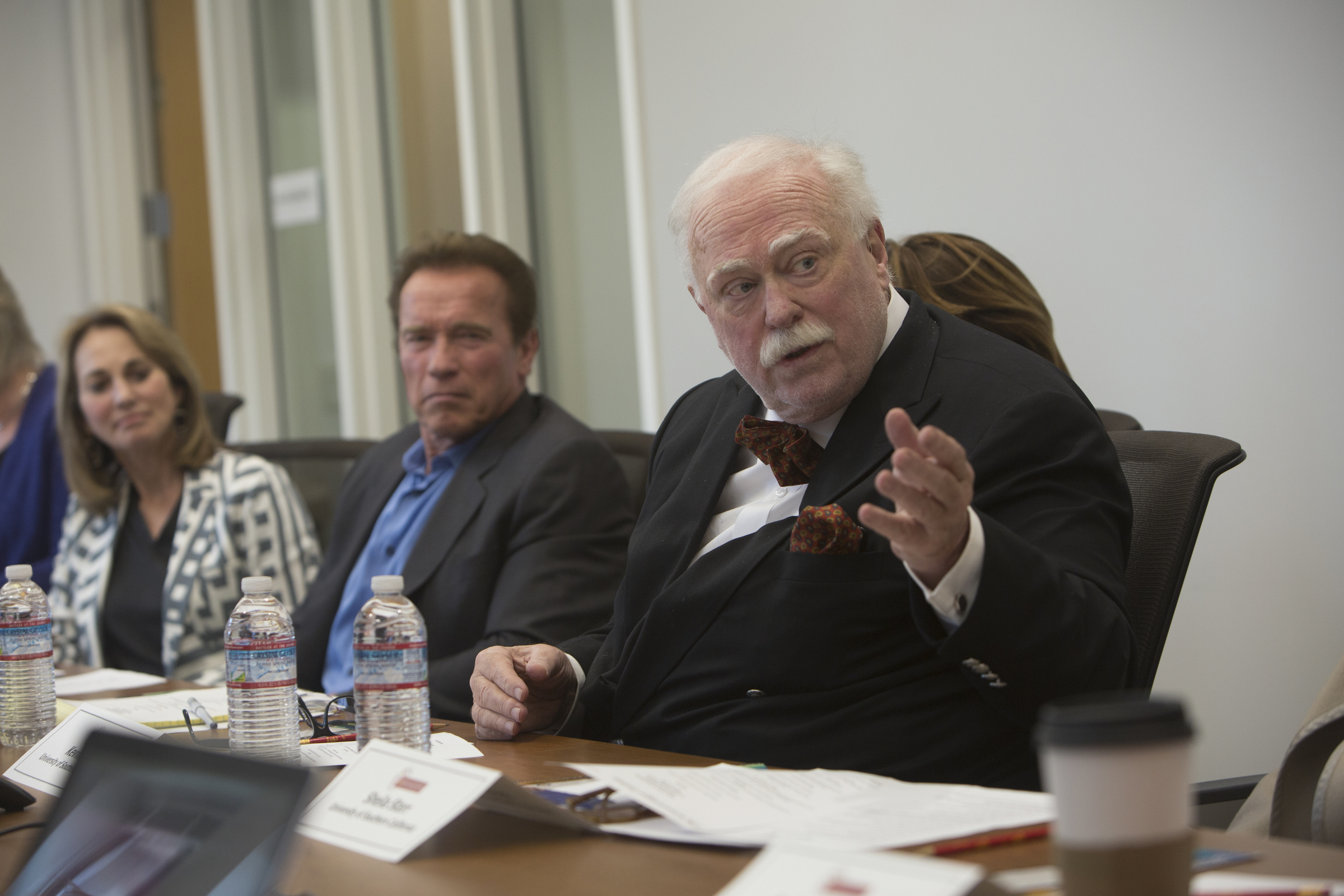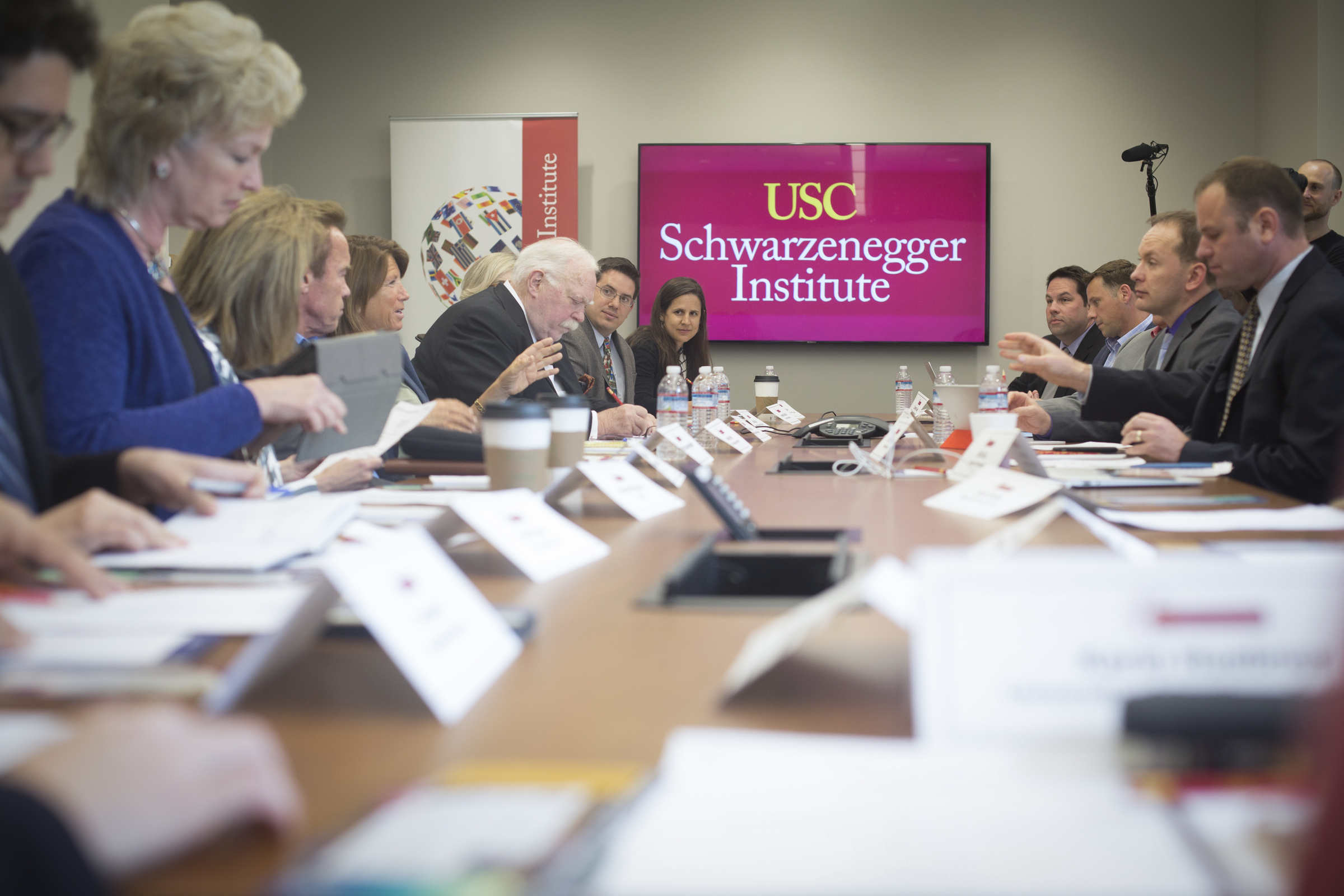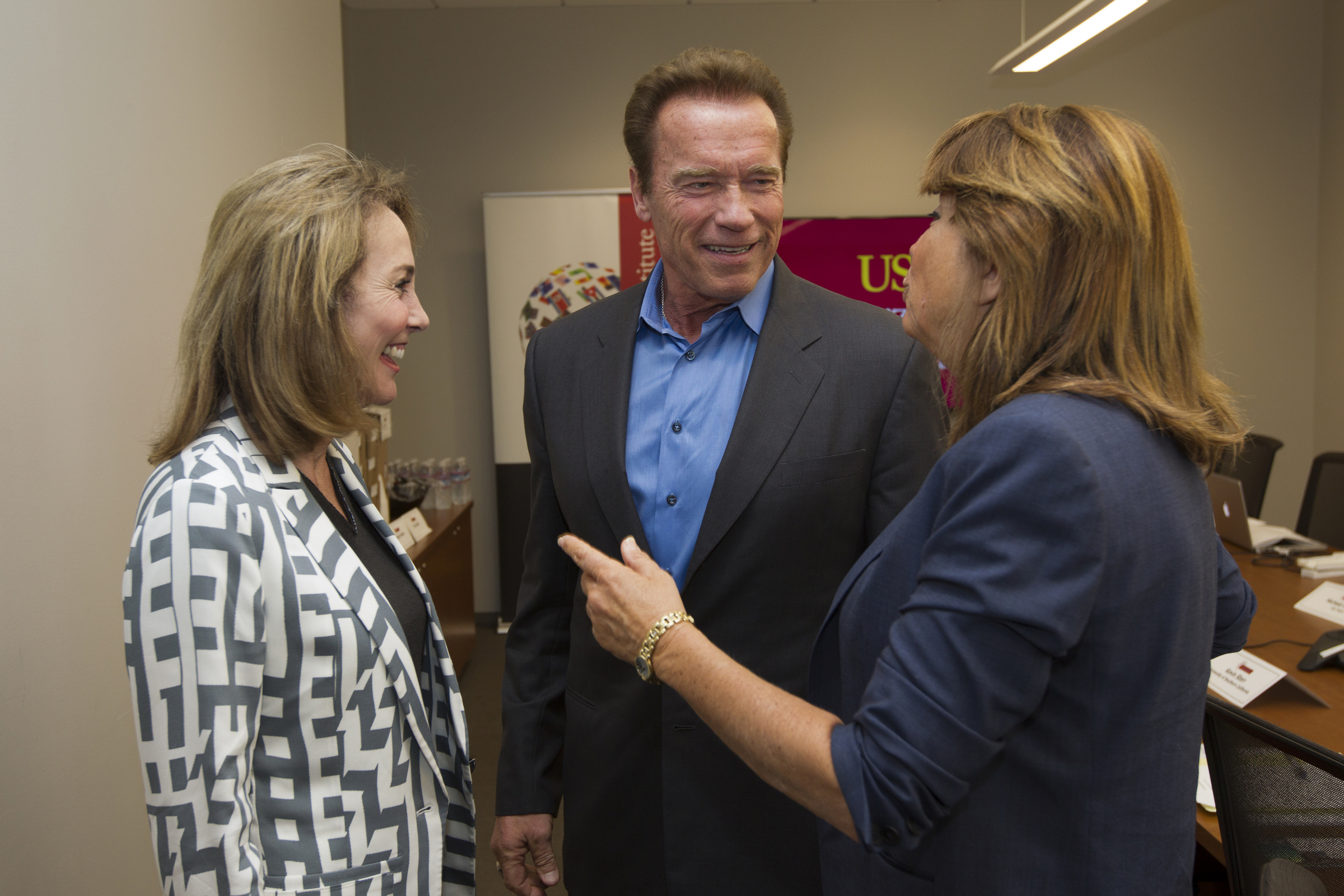USC Schwarzenegger Institute Releases Two Research Reports on Political Polarization
On March 30th the USC Schwarzenegger Institute released two research reports showing that political reforms like those passed by voters in California in 2008 and 2010 can reduce political polarization in legislative bodies and prompt candidates to more actively engage voters across party lines.
In the first report, “Political Reforms in California are Associated with Less Ideologically Extreme State Legislators,” Christian Grose, a Schwarzenegger Institute faculty fellow and professor at USC, found that the California Legislature has become more moderate and less polarized since the introduction of top-two primaries and independently drawn district lines.
From 2011 (pre-reform) to 2014 (post-reform), the Legislature saw a reduction in legislator ideological extremity with a 34-percent reduction in the Assembly and a 31-percent reduction in the Senate, according to Grose.
In the second report, “Evaluating California’s Top-Two Primary: Candidates are More Bipartisan and More Responsive to Independent Voters in Top-Two Primaries than in Closed Primaries,” Grose found candidates were more responsive to independent and opposite-party voters in states that hold top-two or open primaries than in states with closed primaries. Grose’s research also showed that in states with closed primaries, that is where only voters registered for the party which is holding the primary may vote, candidates often didn’t respond to members of another party or that the response was much more partisan. In one example, a candidate in a closed primary state actively discouraged a voter of the opposite party from participating in the upcoming election.
The Schwarzenegger Institute firmly believes that public policy is best formed when guided by facts and data and actively works with academics, political stakeholders and non-government organizations to find areas of mutual interest and collaboration. As part of those efforts the Institute convened a strategy meeting at the University of Southern California to discuss Grose’s research and to examine various political reform efforts currently underway in America and their potential effect on polarization in politics at the state and federal level. The meeting included Governor Arnold Schwarzenegger, leading political scientists from USC, Cal Tech, NYU, Washington University in St. Louis and Stanford as well as senior leaders from Common Cause, AARP, Open Primaries, the Bipartisan Policy Center, IndependentVoter.org and the California Chamber of Commerce.
Governor Schwarzenegger opened the meeting by commending those in attendance for their longstanding involvement with this issue and by stressing his belief that that our political system works best when leaders are held accountable and when they put what is best for the people they represent over the interests of their political party.
Following the Governor’s welcome University Professor Kevin Starr provided a brief historical overview of the rise of political polarization in California. Following Starr’s remarks Christian Grose and the other attending political scientists presented updates on their current research. Cal Tech Professor Michael Alvarez and NYU Professor Andrew Sinclair provided a synopsis of the research presented in their recent book “Nonpartisan Primary Election Reform” and explained how the political reforms implemented in California continue to change the nature of California politics. This was followed by a presentation from Professor Betsy Sinclair from the Washington University in St. Louis that studied changes in Google search volumes in political races in top-two election districts.
Leaders from Open Primaries, Common Cause, the California Chamber of Commerce and the Bipartisan Policy Center briefed the meeting on the status of their work inside and outside California and highlighted some of the success they have seen in states that have instituted reform measures. Martin Wilson with the California Chamber of Commerce explained that since 2012 the Chamber has been actively involved in a number of co-partisan races, that is races that pair Democrat vs Democrat or Republican vs Republican, and that in nearly every case the more “business friendly” candidate won the election.
Jeremy Gruber from Open Primaries used Nebraska as a case study of what can happen when a nonpartisan election system is adopted. For over 80 years Nebraska has had an open primary which regularly produces interesting, counterintuitive results. For example, while 71-percent of the legislature is Republican the majority party tended to work with Democrats more regularly than counterparts in closed primary states. This has led to a number of laws that would usually be associated with the Democratic Party being passed including a repeal of the death penalty, driver’s licenses for undocumented residents and an increase in the gas tax.
John Fortier from the Bipartisan Policy Center discussed the political reforms efforts that his organization is focused on which include increasing voter turnout, streamlining on-line registration and how to leverage technology to enfranchise more voters. Finally, Dan Vicuna from Common Cause provided an overview of the work his organization is doing to advocate for redistricting reform throughout the United States. Common Cause is actively engaged in challenging gerrymandered political districts in both the courts and in the press and was pleased to updates on positive developments in Maryland and North Carolina.
Despite a number of successes it was universally agreed that hyper partisanship was still a major factor in American government and that extensive political reform was still needed. This belief, combined with many of the ideas that were discussed at the Schwarzenegger Institute meeting will undoubtedly lead to additional research studies and better-informed political reform advocacy campaigns in the future.

.jpg)
.jpg)
